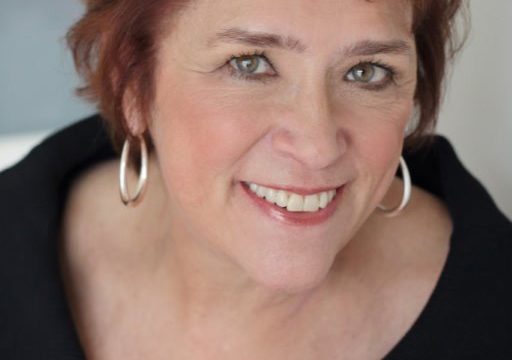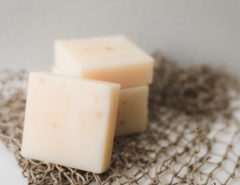BY: ALEX PIERCE-FELDMEYER & MACKENZIE HANNUM
How one woman started a sensory consulting business when there was no place for a woman in Corporate America.

Where it all started…
Mona Wolf grew up in Southern Indiana. She was a part of 4-H, loved food, cooking, baking and had a strong instinct for hospitality. She also found herself drawn to food development but lacked the awareness that food science could be anyone’s future profession.
Throughout her childhood, a woman in food industry equated to home economist, and Mona knew she didn’t want that. She wanted to be a professional. And once she landed at Purdue, a food science professional she became.
Growing up, Mona was one of four daughters where family dinner conversations revolved around her future as a teacher or a nurse. Despite her family’s norms, Mona believes that “she was just rebellious enough to think she could be a doctor instead.”
“That’s what we were pre-programmed to be. I just didn’t pre-program well. I wanted something more, something professional. I wasn’t looking to be second. I was looking to prove myself to me, that I could be anything I wanted to be.”
After Mona reached college and found her way to food science…
Mona jumped right into employment for a government research position that consisted of mostly lab-bench research, only to find out she hated it….
Within three months she was quickly offered another position at RT French in Rochester, NY where she worked for 6 years in product development. Over time, Mona found product development too isolating and felt it was not a great fit. Ready for another challenge, she decided to get her Masters of Business Administration (MBA) to support her business acumen. She fancies her drive was inspired by her grandmother who had been the “brains” behind her grandfather’s hardware business.
It just so happened at the time RT French was going through a period of layoffs, and Mona was one of them. So, with just couple of months remaining before receiving her MBA, a friend let her stay on their couch until graduation.
After graduating with her MBA, Mona interviewed with The Kroger Co. for a leadership position – Sensory Leader for quality assurance and quality control (QA/QC). Mona was candid about having minimal sensory experience, but Kroger claimed they would teach her everything she needed to know. They honored their word by training her and supporting her attendance to short courses, where she continued to learn outside of the company. Mona’s career in sensory science had begun. This position turned into a 10-year stay, but after a decade, with children at home, Mona found herself torn between being a full-time mother and a professional.
The beginning of the Wolf Group
“You have to be willing to take risks!”
Taking risks was a reoccurring theme in our conversation. It was especially apparent when Mona went through her second bout of layoffs. Kroger relieved much of the R&D department and a unique situation allowed Mona to take 6 months pay upon resignation. This was the ultimate opportunity for her to explore new career options and be the mom she wanted to be, so she ran with it.
Driven by the belief that there was not much of a place in Corporate America for a woman, she started her own sensory consulting business to carve out a place for herself. She told her husband she would try it for 6 months and if she did not make her annual salary from Kroger she would flip hamburgers, wait tables—anything to support her family.
And after six months, Mona created work and made her salary from Kroger.
How was she successful, you ask? “Half of the R&D department was laid off and these people went all over the country for new jobs,” Mona explained. “Layoffs were the best thing that happened to me.”
Her network suddenly exploded. She had formed relationships with many people now placed in multiple companies that wanted to contribute something new to their employer, at least in Mona’s opinion. “My theory is new employees want to make a good impression and bring in something new that helps the business,” and she was that help. Many companies didn’t have sensory capabilities at that time or were extremely elementary.
“When I first started my business, I had a vision that women could have a job that could flex around the family, not flex the family around the job. So, you could be a mother and a wife and still be a corporate professional.”
The Wolf Group grew through relationships in Mona’s eyes. One of her prime examples was a story about spending time with a graduate student at a conference surrounded by industry professionals. Later, that student worked for a company that hired Mona based off that student’s recommendation. Mona’s relentless appreciation for students paid off!
“I believe in the next generation and what they’re going to develop.”
What is it like to work at the Wolf Group?
It’s not easy! The work load is very dynamic. Mona described how, often times, the industry reallocated money in and out of sensory research. It can make it difficult to maintain a predictable work flow. But that’s what keeps the work interesting – it’s never boring!
“The business is cyclical. Unless a project comes in, there is no work. At one moment you might have 3 or 4 projects to organize, implement and analyze or there might be days with no projects.”
And it can be risky. For example, Mona described a scenario where a standard client of hers was over budget in another sector of the company and thus could not do business with the Wolf Group for the time being. Things can happen with clients out of the consultant’s control, which can dictate if there is a project or not.
This is also the reason Mona never agrees to exclusively work with one company. “This was too risky due to the nature of food industry,” Mona explained. If a company dropped her, she would be out of business.
What products does the Wolf Group work with?
Anything! Anything a consumer puts their hands on is applicable to this group. The Wolf Group has worked with food: ice cream, cookies, craisins, shrimp scampi, cheese sticks, steaks beverages of all sorts…etc.!
Of particular interest is non-food sensory work on sunscreen, shampoo, body washes, razors, shoe inserts, feeding tube material, over the counter (OTC) appliances for back pain…etc.! Non-food sensory work does not receive much attention in Food Science departments…well…because it’s food science. But non-food sensory is critical to QA/QC, product development and more.
“It is very important for students and budding sensory scientists to understand that any consumer product must undergo sensory testing. Non-food products make up a large part of the market and present its own unique challenges, demanding a creative approach to testing methodology development.”
This part of sensory has received less attention such that a committee was formed within the Society of Sensory Professionals (SSP—of which Mona is a founder) called Beyond Food to encourage more research and sharing of methods in this area.
How much impact can a sensory consultant have?
Sensory testing can save a company a lot of grief…and money!
Mona described a scenario in which a company without prior experience with sensory testing wanted to optimize acceptance of their mozzarella cheese sticks. To answer this client’s request, the Wolf Group performed a Design of Experiment1 (DOE) and defined the ideal profile for the cheese sticks. Within 18 months it was chosen by Consumer Report as the best cheese stick on the market.
This was just one scenario among others. Her descriptive panel also determined a change in the wine used in a shrimp scampi sauce was due to the procurement officer sourcing from a different vineyard. Another time, consumer complaints of off-tasting vanilla ice cream drove a quality control team to Mona to figure out what was going on. Through rigorous tastings and evaluations, Mona’s descriptive panel was able to determine the taint in the vanilla ice cream was due to adding food-grade machine oil to the formula instead of vanilla extract. Later, they found out it had been because these substances were contained in similar looking bottles, confusing those on the factory floor.
After hearing these stories, we felt mighty grateful for sensory science and its ability to figure out what went wrong! Sensory science is a satisfying sector of food science professions. It plays a high stakes role in QA/QC and many of a company’s product development decisions.
Other good reasons to be in sensory science include a decreasing wage gap between men and women age 20-29 in the U.S.,2 something Mona Wolf would be very glad to hear.
In summary, what all did we learn from Mona Wolf?
- You can be a mother and a corporate professional
- You need to pay your dues. Put in 10-15 years in industry, if not longer.
- Explore, explore, explore!
- Learn as much as you can about different parts of the industry when you are in school (internships, shadow, etc.)
- Relationships are critical
- Support the students
- Don’t be afraid to take risks.
“You can’t be timid… You have to be willing to fail. Without some risky decisions, I wouldn’t be where I am today.” – Mona Wolf, CEO Wolf Group
Want to read more interviews? Follow us on Instagram and Facebook for the latest posts, seminars, and events about food science!
References
1 Granato, Daniel, and Verônica Maria de Araújo Calado. “The use and importance of design of experiments (DOE) in process modelling in food science and technology.” Mathematical and statistical methods in food science and technology (2014): 1-18.
2 Kuhn, Mary Ellen and Malochleb, Margaret. 2017 IFT Employment & Salary Survey Report: Earnings Grow, Wage Gap Shrinks. Survey. 2017






Leave a Reply